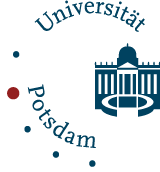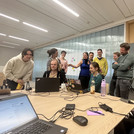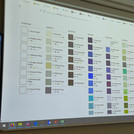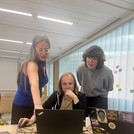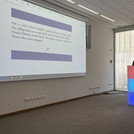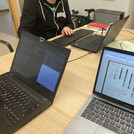Combining Weather Data from Ships Logs with Corpus from Cultural Texts
What is the project about?
Everything we know about past climate change and variability depends on access to historical observations of past weather. Some of the most comprehensive observations were made on long sea voyages. I have a Github repository of data sets Weather observations from marine expeditions made 1770-1920s, including famous voyages by Captain Cook, Arctic expeditions, etc. The data from these voyages is invaluable to climate science, but of course these voyages are also happening under the auspices of colonialism. We have textual corpus describing these voyages, as in the case of Darwin’s Voyage of the Beagle. And we have literary texts produced during this same period which reflect many of the same themes of these voyages, in particular: exploration, and taxonomy.
What is your research question?
How can we combine weather data from these expeditions with other cultural texts produced during this time in a playful way that reveals something of the colonial underpinnings of these texts?
We are particularly interested in a genre of Vicorian literature known as nonsense literature, in which, new animals are constantly being invented. See links below. What kinds of playful new accounts of imaginary voyages might be invented combining weather data and textual corpus?
What methods, data sets, and tools are used?
Everything we know about past climate change and variability depends on access to historical observations of past weather. For the 70% of the world covered by ocean, that means the International Comprehensive Ocean-Atmosphere DataSet (ICOADS).
ICOADS is a comprehensive collection of everything already in an appropriate digital format, but there are plenty of historical observations that are not yet included. Most of these exist only in printed form in libraries and archives - to make those available to science, we need to transcribe them, convert them into modern standard formats, and provide them to ICOADS for inclusion. That’s what we are doing here: We find old reports containing weather observations that we want, but are not yet in ICOADS, and transcribe and convert the observations.
This is a feeder dataset for ICOADS: It includes raw transcribed observations, software converting those into a standard format, and the final standardised observations. If you just want the observations, you don’t want this - use ICOADS instead, but if you are looking for the provenance of the observations, or an example of how to do the necessary format conversion, this may be for you.
Who is part of the team?
J.R. Carpenter, Jan Jokisch, Caterina Vanelli, Viktor Illmer
